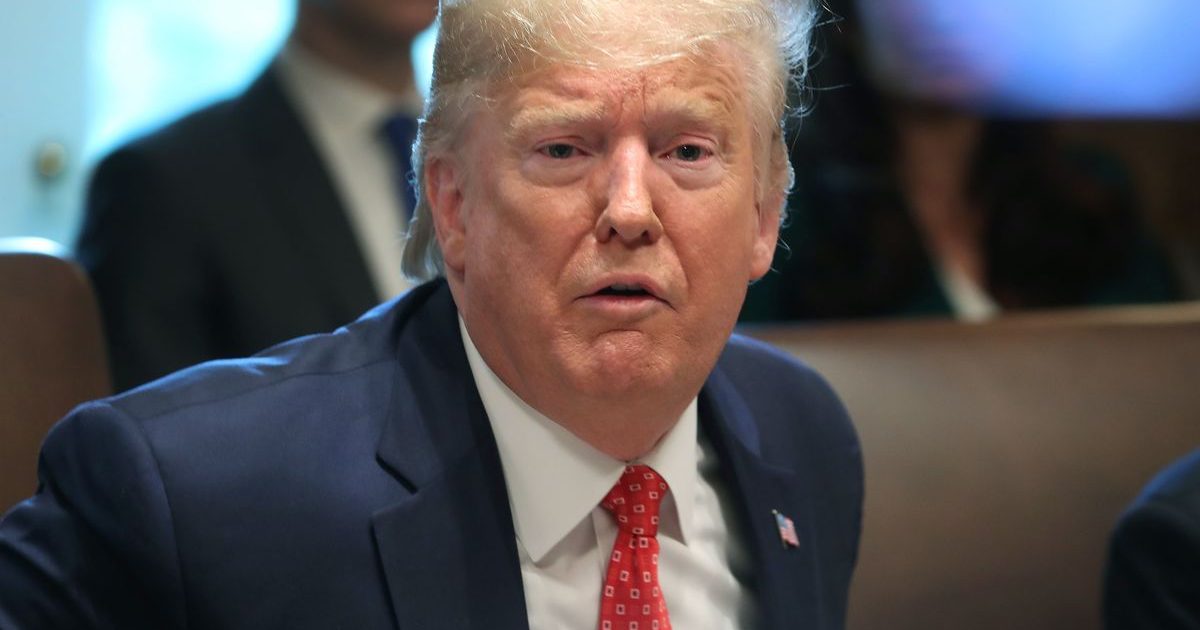- Trump threatens to derail trade talks with China, standing firm on Beijing making huge agricultural purchases.
- U.S. stocks decline as investors move capital into safe-haven assets.
- Bitcoin yet again fails to act as a hedge while gold surges.
Gold outperformed its rival bitcoin on Wednesday as trade talks between the U.S. and China seemed to hit an impasse.
President Donald Trump on Tuesday threatened to slap more tariffs on Chinese goods, a move that could thwart the White House’s plans for a “phase one agreement.” Investors took Trump’s words as a cue to move out of risk-on assets, causing declines in the Dow Jones, Nasdaq and S&P 500. They instead jumped at haven assets, sending the yield on 10-year Treasurys to 1.751% from 1.784% on Tuesday. At the same time, the hedging sentiment helped gold rise as much as 0.5%to set an intraday high of $1,478.739 an ounce.
Bitcoin Unfazed by Trade Situation
Investors, meanwhile, maintained a safe distance from bitcoin. During Wednesday’s session, the bitcoin-to-dollar exchange rate slipped by 0.4%. The downside move extended the pair’s weekly losses to 4.8%. On a month-to-date scale, it declined 11.70% on U.S.-based Coinbase exchange.

But analysts believe bitcoin is merely neutralizing its long-term bias after spiking earlier this year. Pseudonymous trader Bitcoin Jack sees the cryptocurrency inside a large upside parabola – an indicator that determines the direction and potential reversal of an asset. The analyst tweeted Tuesday that the price could fall to as low as $5,000, adding:
“Bitcoin will have to prove to me it’s bullish. Until then, parabola case study stands and correction is expected to continue.”
Until I can see clear conviction derived from bullish PA, parabola case study still stands and we have still not corrected close to any statistically accepted ranges seen in Bitcoin and other assets
5xxx is the first range within historical statistical behaviour https://t.co/tYI1WdV0x2
— Bitcoin 𝕵ack (@BTC_JackSparrow) November 19, 2019
Many also see bitcoin losing its negative correlation with the U.S.-China trade situation and is more likely to behave as a risk-on asset. The cryptocurrency’s 45% downside correction from its year-to-date high near $14,000 has led Fundstrat co-founder Tom Lee to equate it with U.S. stocks.
Back in September, Lee said bitcoin is not a safe-haven like gold. Instead, it falls more in the category of the S&P 500 index. He tweeted:
“The downturn in bitcoin followed the risk-off selloff in [the] equities. [It] reinforces our ‘unpopular’ opinion that bitcoin does not do well in a ‘trendless macro’ environment, and new highs needed in S&P 500 before BTC can blast off. Why? We think crypto is retail and thus, risk on.”
Confusing Outlook
U.S.-China trade talks now stand stalled. While Trump says China is trying to buy a large amount of agricultural products from the US, his threat to slap tariffs on Beijing exposes the real conflict. China so far has not specified how much agricultural goods it plans to buy from the U.S. It is only Trump who is claiming that Beijing has committed to buying up to $50 billion worth of farm goods annually.
Our great Farmers will recieve another major round of “cash,” compliments of China Tariffs, prior to Thanksgiving. The smaller farms and farmers will be big beneficiaries. In the meantime, and as you may have noticed, China is starting to buy big again. Japan deal DONE. Enjoy!
— Donald J. Trump (@realDonaldTrump) November 17, 2019
The chicken-and-egg situation is looking to create a more confusing outlook for the global economy. Investors, therefore, would more likely hedge into safe-haven assets than risk-on equities. On the other hand, if Trump manages to squeeze out another rate cut from the Federal Reserve this year, it would give equities a short-term relief, which could benefit bitcoin as well.
Until then, the cryptocurrency remains a very speculative investment vehicle for all, and therefore unattractive. Only investors with a huge risk appetite would venture into it.




